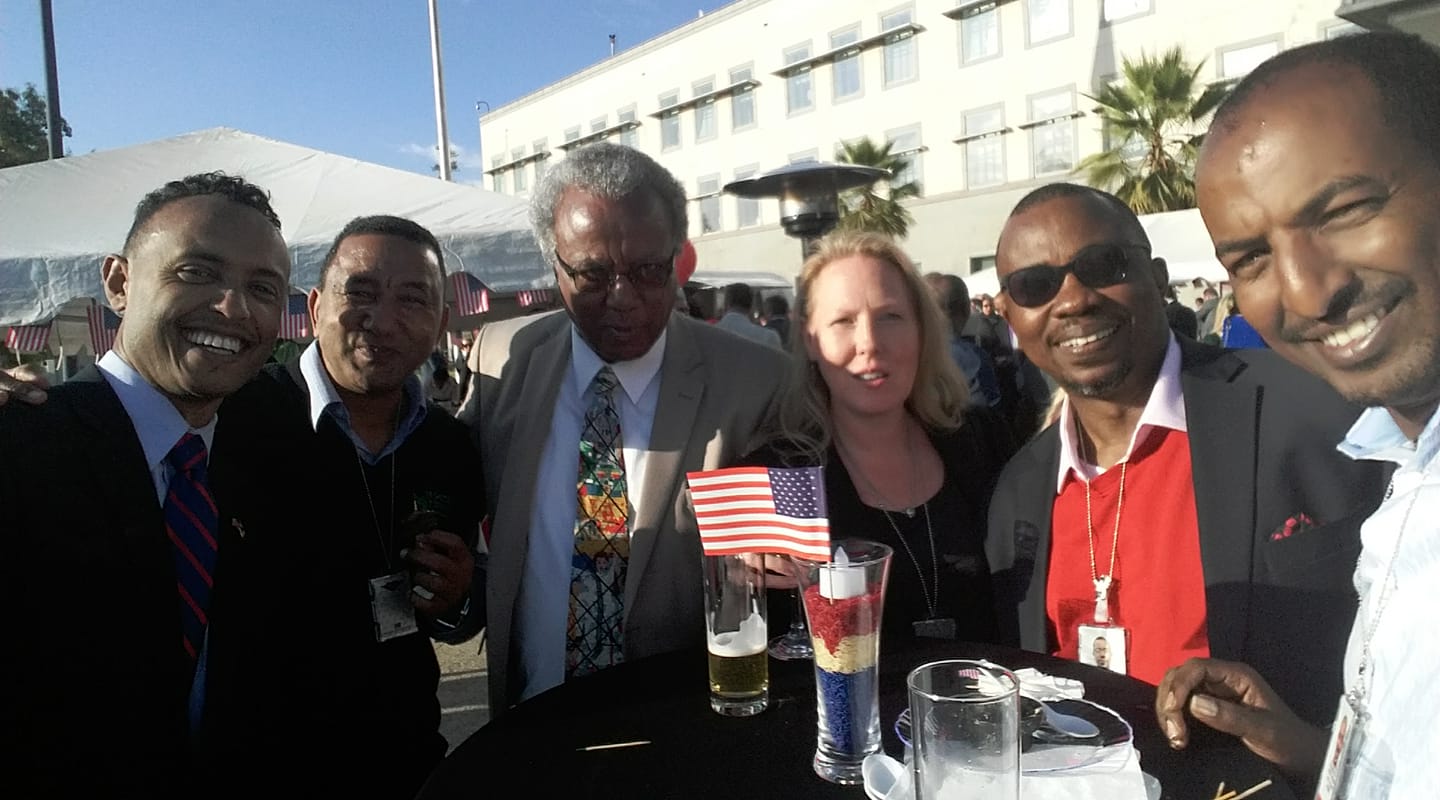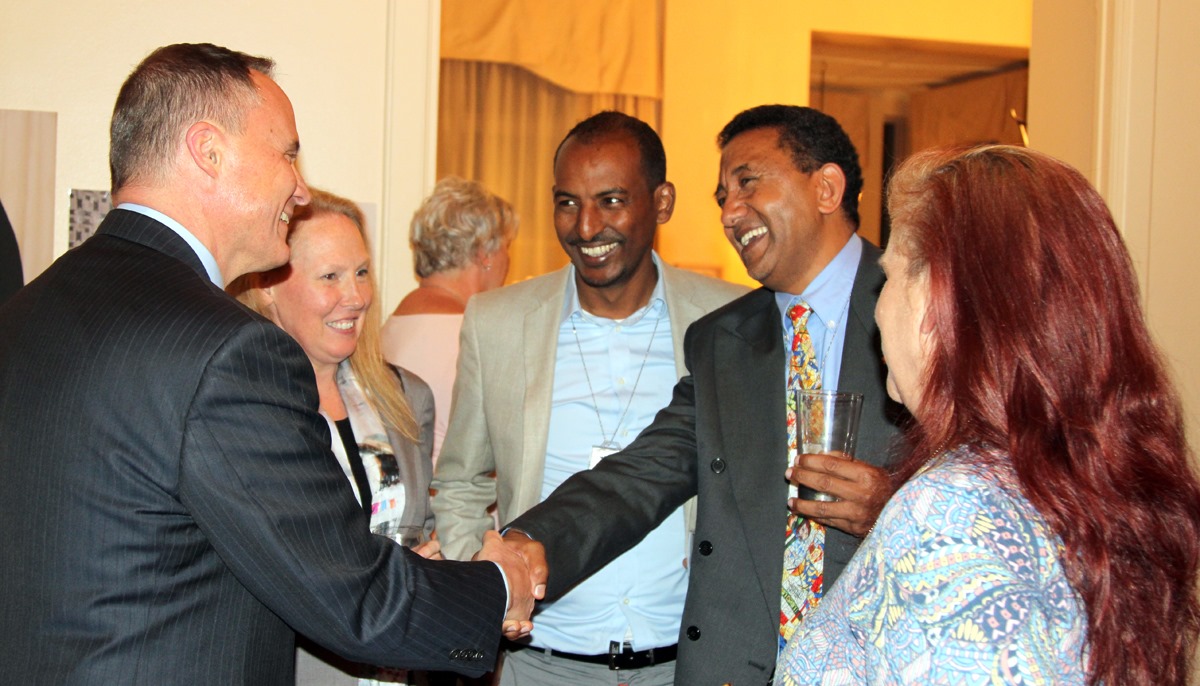

By Brittney Dear
Daniel Alemneh, a digital curation unit supervisor for UNT Libraries, was accepted as a Fulbright Scholar in 2019 and, in September 2019, traveled to Ethiopia to help develop digital library structures for universities and organizations. His project also included providing courses related to digital library development, management, best practices and other associated trainings. This was his first Fulbright scholarship.
“Fulbright is the most prestigious scholarship in one’s professional life, so it was exciting to receive it,” Alemneh says. “My colleagues were excited, too. It really is a huge privilege.”
Alemneh dreamed of becoming a Fulbright Scholar as an undergraduate at Addis Ababa University in Ethopia, where he studied Library and Information Management. When he began working and pursuing his PhD at UNT in 2005, he had three young children and wasn’t quite ready to engage in a year-long research program until recently.
The timing was relatively better in 2019.
“I was ready to do the research,” Alemneh says. “And when I applied, fortunately the time was right.”
Alemneh’s motivation behind his project stems from his Ethiopian heritage and his desire to lessen the digital divide between developing countries in Africa and the rest of the world. His goal is to promote global Open Access, an online space where research is distributed.
“I’m originally from Africa and have a network already, so I took that as an opportunity to promote Open Access,” Alemneh says. “OA is a two-way street, and there is a lot of unique and high-impact research in Africa that isn’t available globally. With Open Access, the research can be immediately shared.”
His project was nearly halfway complete when it was disrupted by the COVID-19 pandemic, which Alemneh and his team learned about in February from the U.S. Embassy in Ethiopia. In March, Alemneh and all other U.S. Fulbright participants were encouraged to leave the country as soon as possible. Alemneh then found out that his children were flying to the U.S. from Europe, and because they’d be quarantining, he wouldn’t be able to return home and stay in the same house as them. Therefore, he decided to stay in Ethiopia for the time being but ended up staying for the rest of the year.
“I was watching the news, thinking: Should I go? Should I stay? Should I go?” says Alemneh. “UNT also encouraged me to work from home, and cases in Africa are mild. It’s a bit scary, but the actual COVID cases are not that bad here.”
It is hard to fathom the disruption that the worldwide suspension of the 2019-2020 Fulbright program has caused to both professional and personal life. Alemneh has continued his work with Ethiopia while teaching online. However, his sabbatical/Fulbright research has been impacted significantly, since he planned for most of the progress to take place in the second half of the project. Much work was accomplished, yet additional time when the universities, museums and other organizations are open for business would allow for the trainings and research to resume, as well as the exploration of how improvements in information technology could transform institutions and increase capacity for future expansion. Like others in his 2019-2020 Fulbright cohort, Alemneh would welcome the opportunity to complete the various projects he started and complete the meaningful research. Alemneh is hopeful that he will be able in a few years to take part in an international conference hosted in Africa covering issues concerning Open Access and digital libraries.
“Thanks to the Fulbright experience and the connection we formed, we will continue to foster greater relationships, whether virtually or in-person. We will find a way to do what we do, and the collaboration and partnership will continue,” Alemneh says.
Alemneh says he is honored to part of a collaboration with Addis Ababa University, for which his work in Ethiopia provided the necessary foundation to build a long-lasting and impactful relationship.
“I’m very grateful for the many opportunities and hope that, in the near future, there will be study abroad prospects for UNT students in Ethiopia as well as increased mobility between Africa and UNT,” he says. “This could potentially increase exposure for international student research both at UNT and globally.”

